Shakespeare Memes
Tuesday, April 23rd, 2019Happy 455th Birthday to Shakespeare!
In honor of the occasion, I present… Shakespeare Memes!
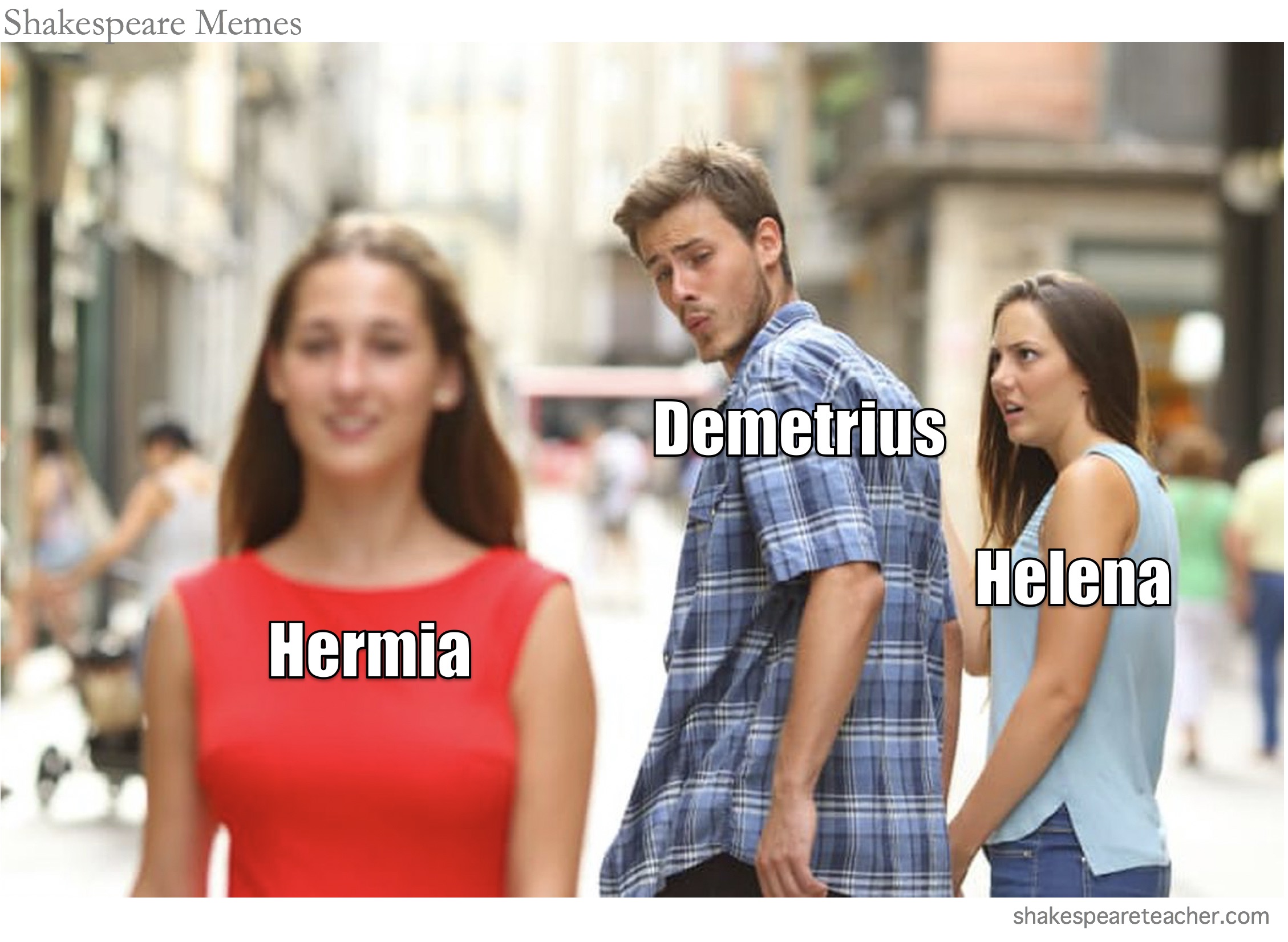

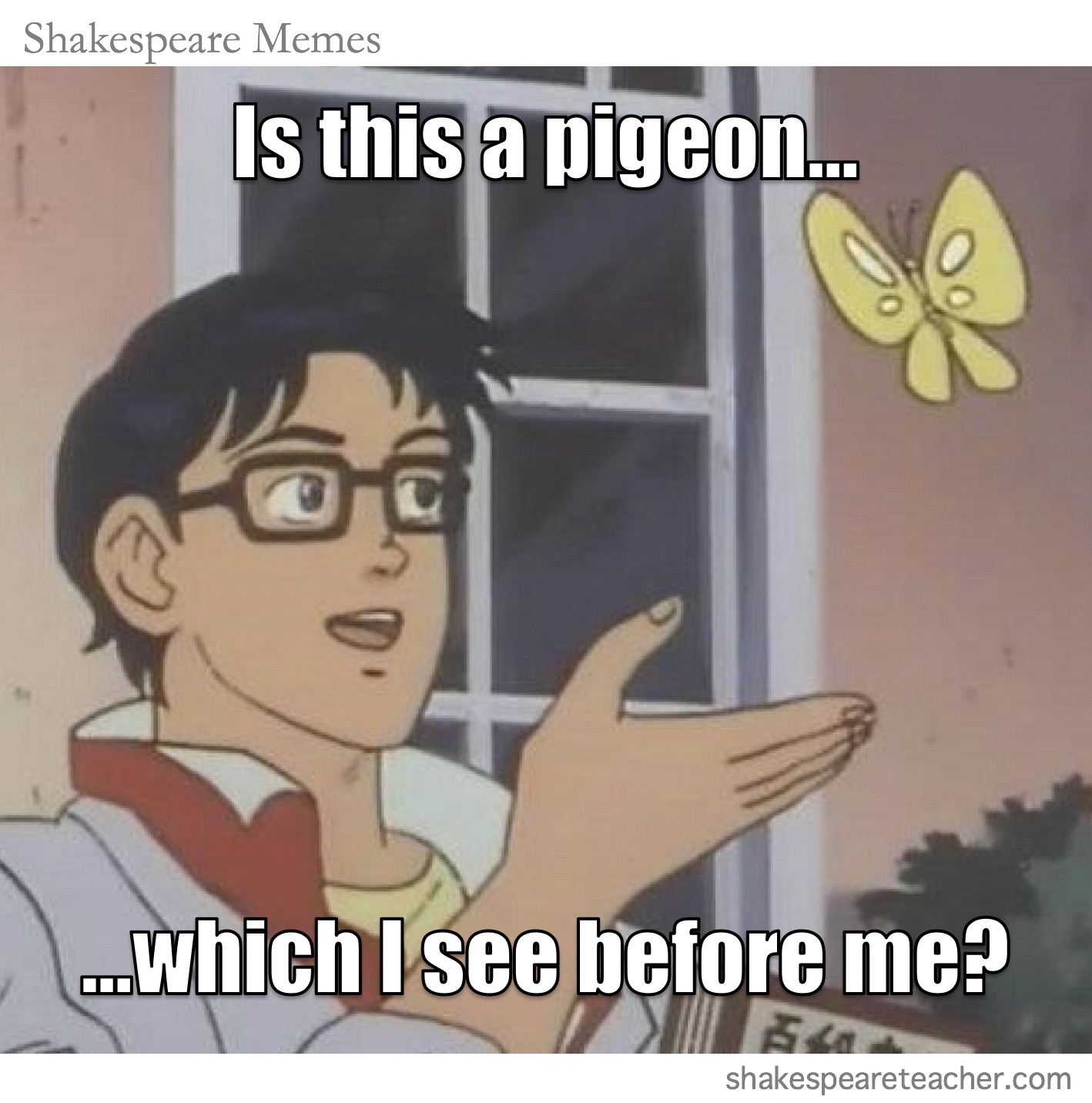

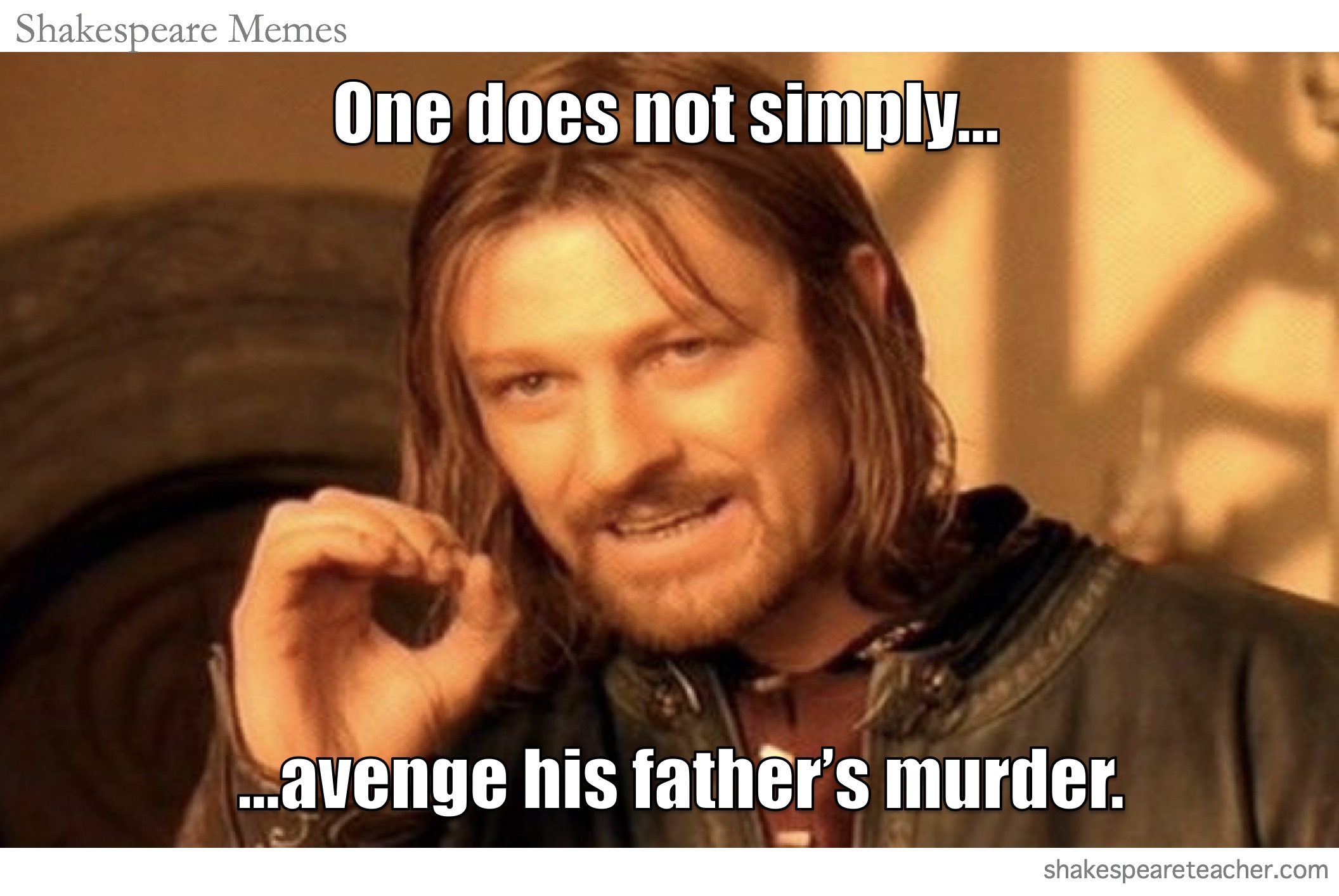
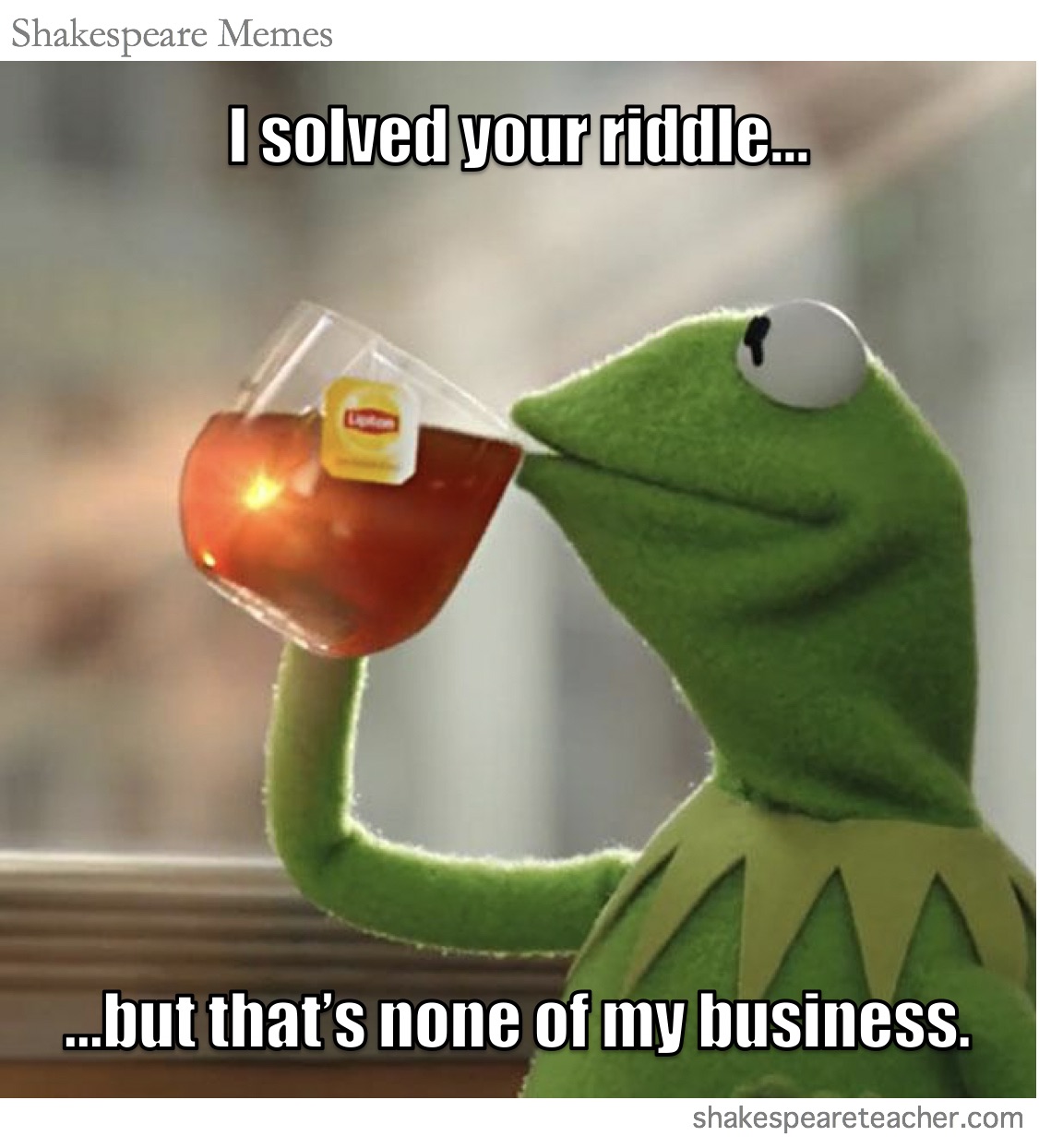

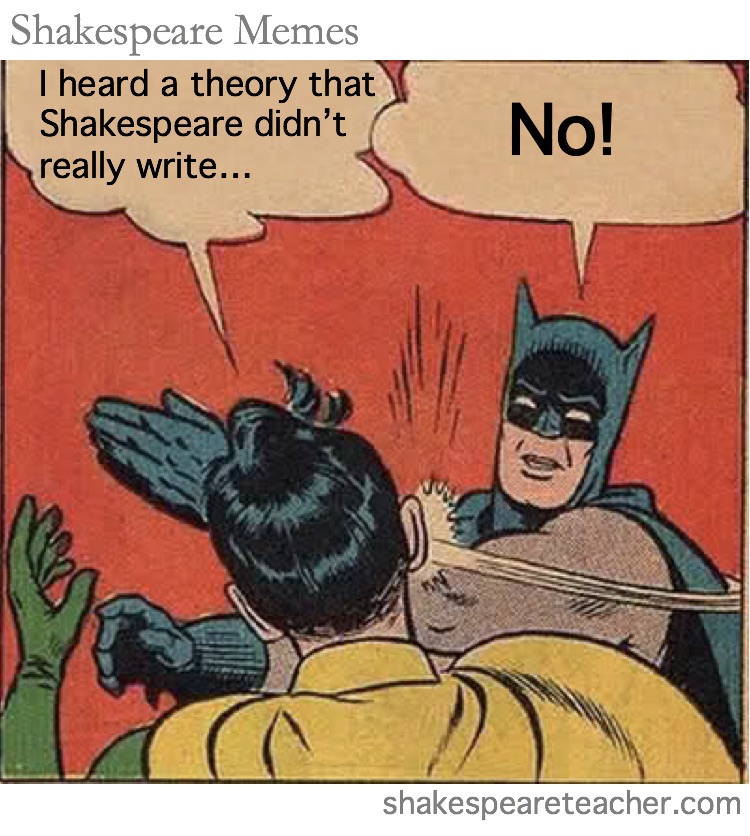
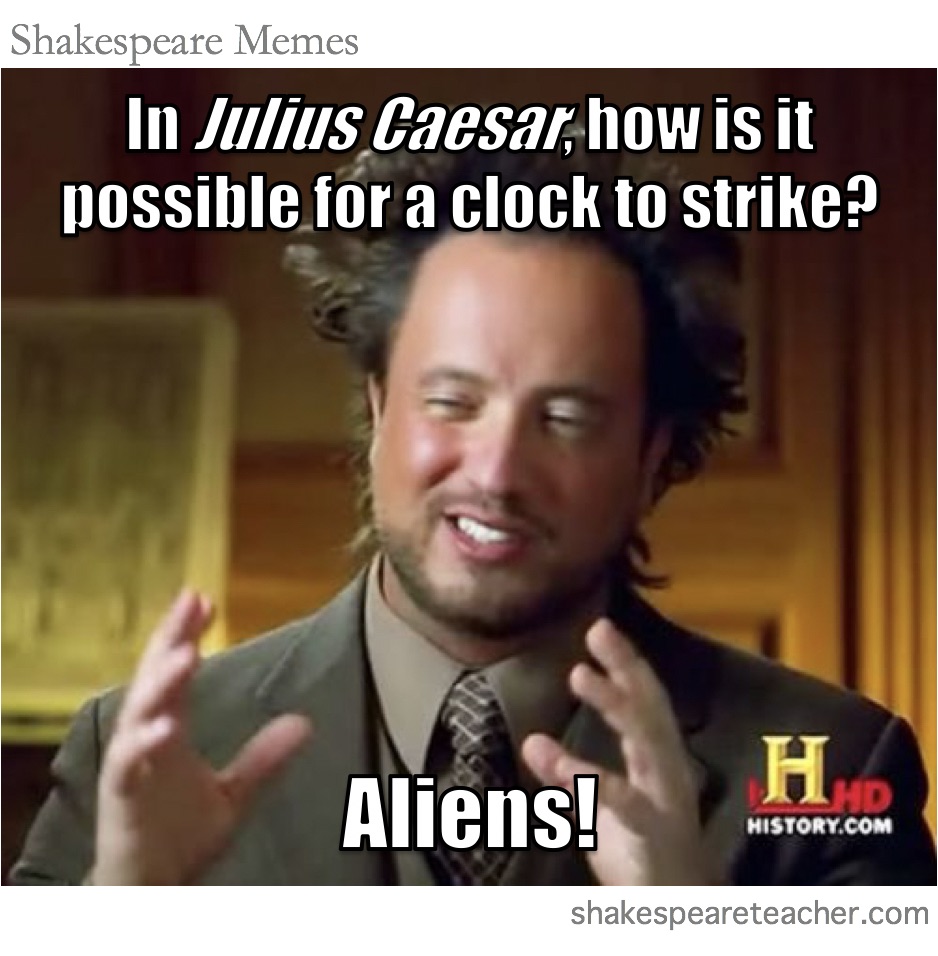
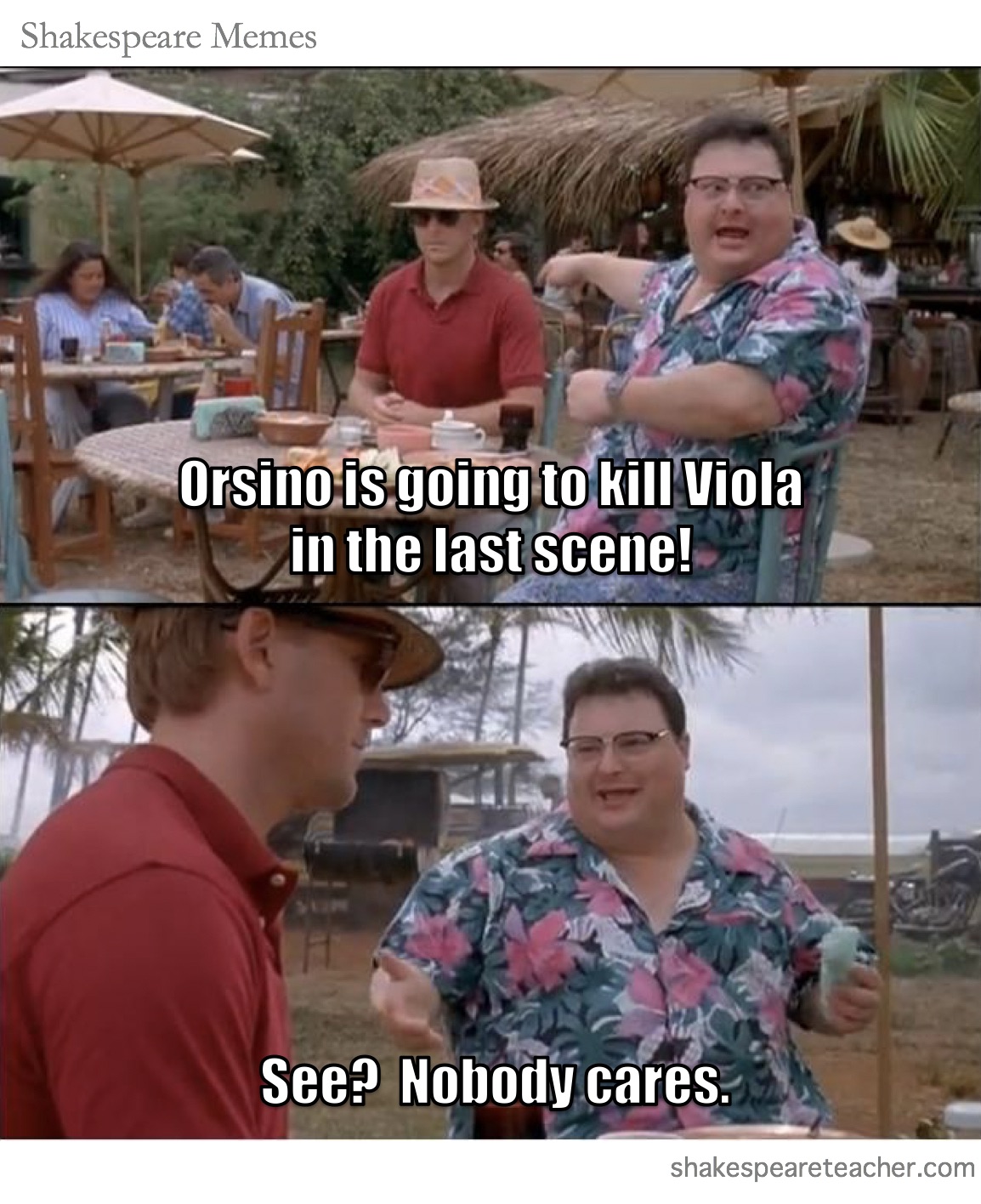
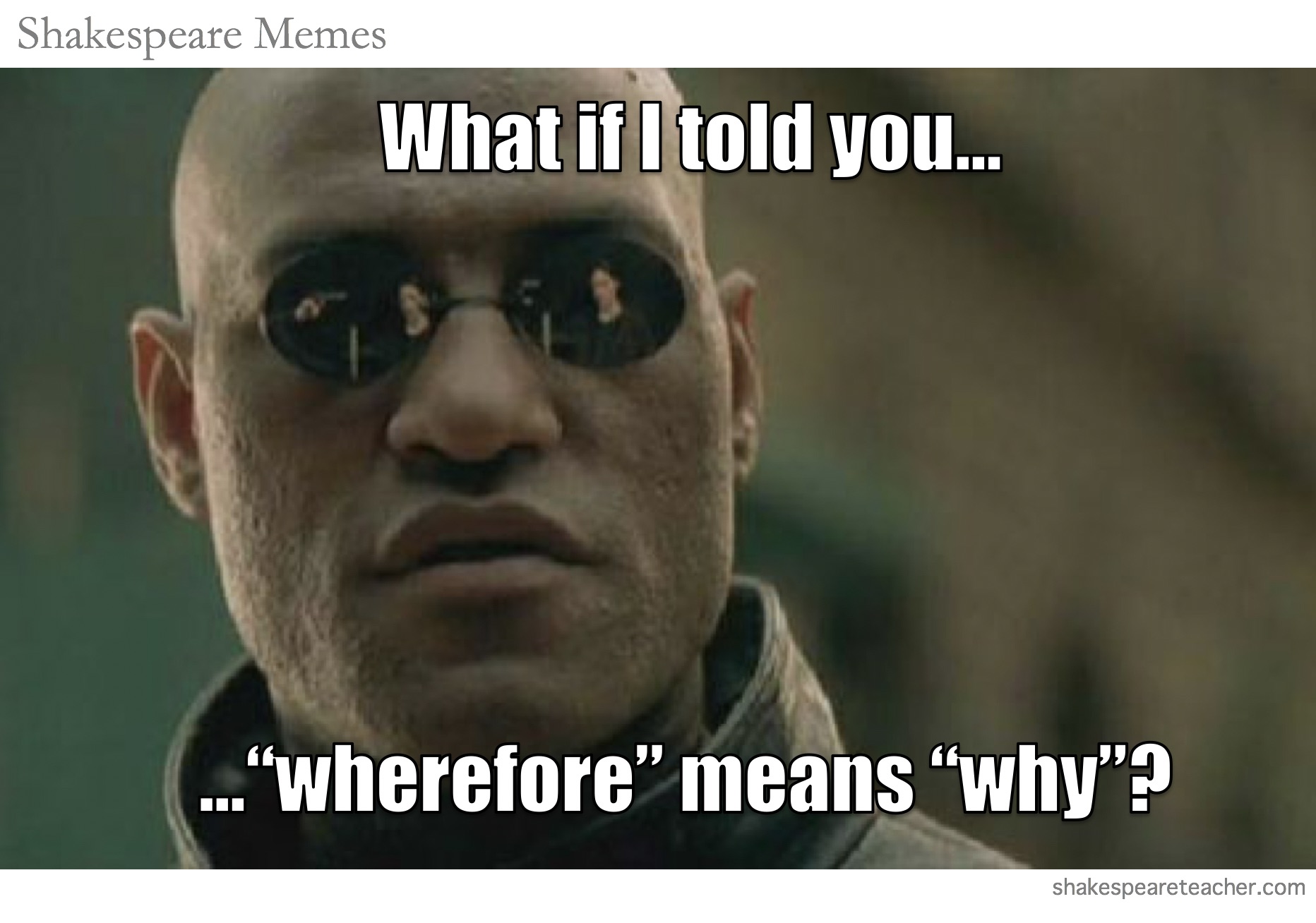
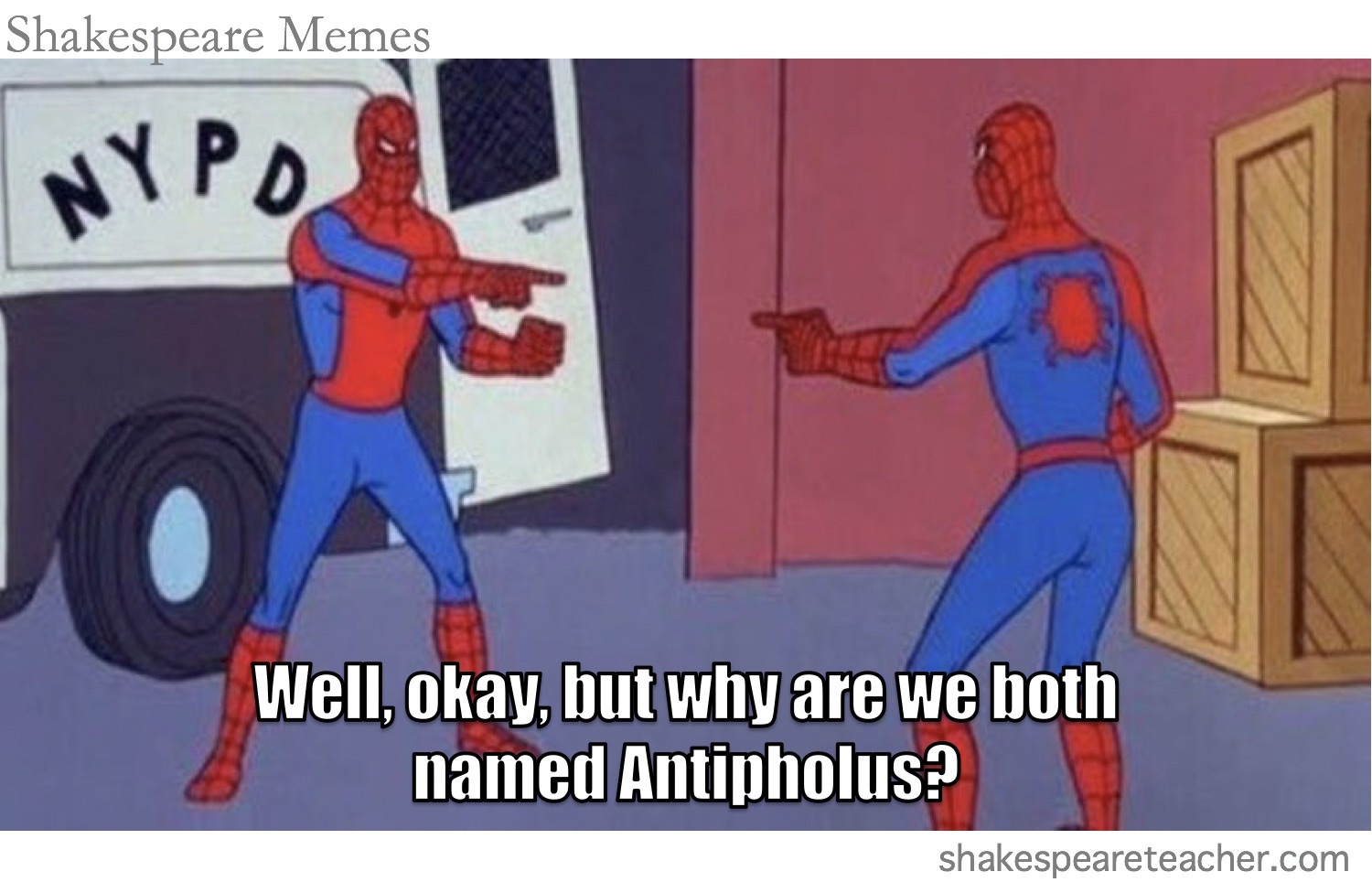
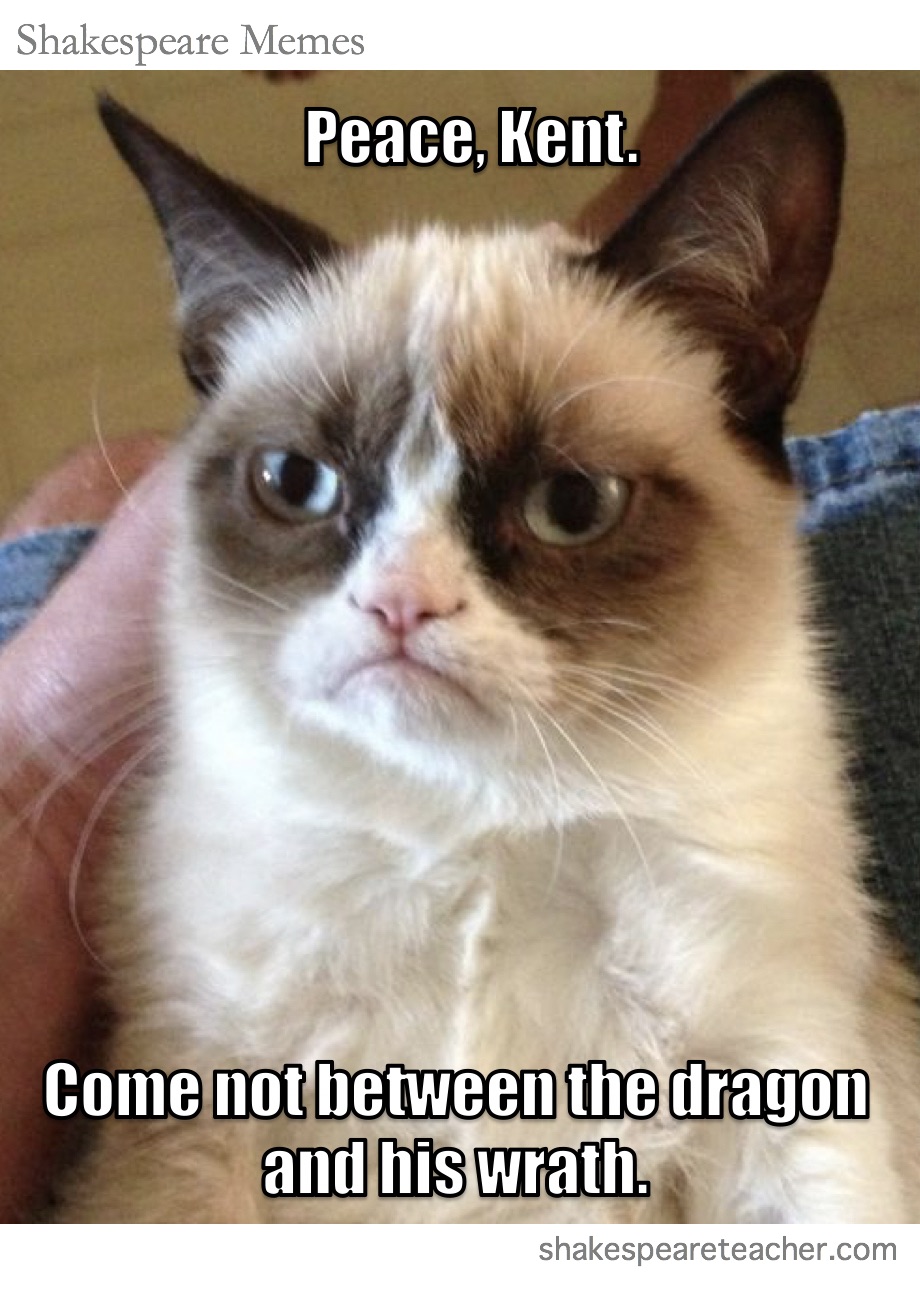
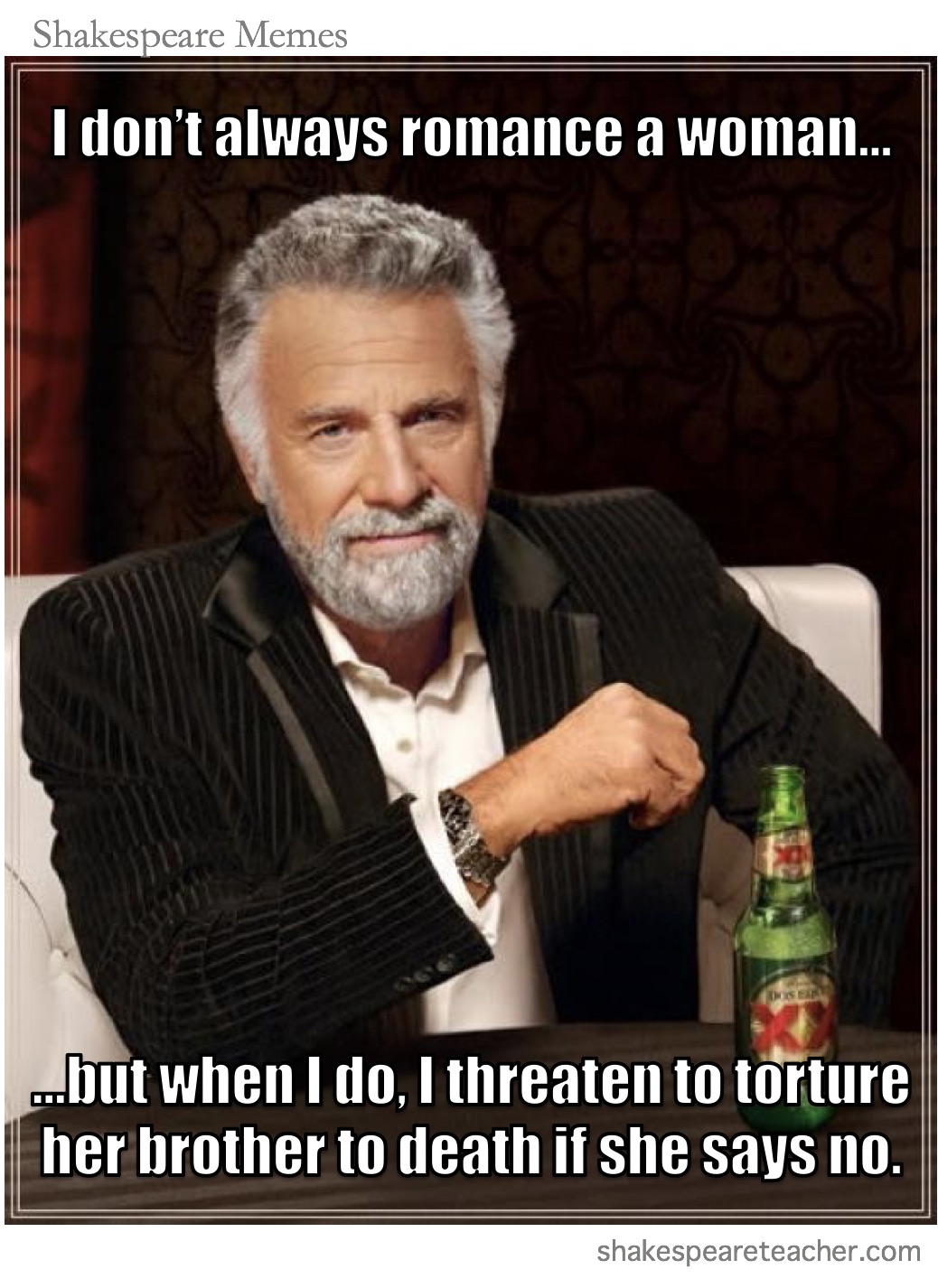
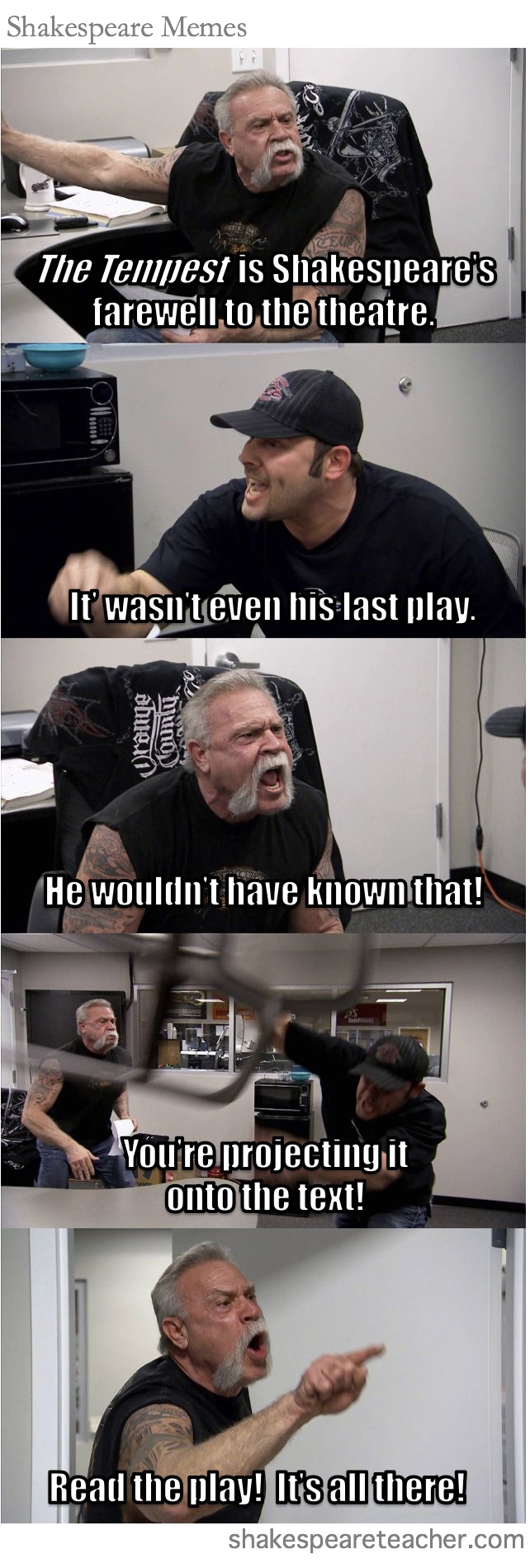
Happy 455th Birthday to Shakespeare!
In honor of the occasion, I present… Shakespeare Memes!















In a NYC Shakespeare season filled with a Macbeth here and a Midsummer there, with two productions of Romeo and Juliet running and another two Kings Lear on the horizon, it would be hard for a single production to stand out as the fairest of them all. Nevertheless, I was looking forward to seeing Mark Rylance play Richard III in the currently running production at the Belasco Theatre with a higher degree of anticipation than any of the others. Richard III is my favorite play, and I love Rylance as an actor. I first saw him about 20 years ago playing Henry V in New York and then Benedick in London shortly after. He and I may not agree on who wrote these words, but I’m always glad to hear him speak them.
My anticipation had some extra time to build, as the actors do their pre-show preparations in full view of the audience. Some audience members were seated on the stage, which evoked the feeling of the Globe. The actors changed into costumes from Shakespeare’s time (not Richard’s) and the musical entertainment seemed Elizabethan as well. So when the show began, and Richard’s opening monologue was given in a presentational style, it seemed to fit with the concept they were going for.
Once Rylance began his winter-of-our-discontenting, I was hit by a sense of deja vu, before realizing that I had seen Rylance give this speech before. He delivers the same monologue playing Burbage in Anonymous. But this was a very different delivery than the one he gave in the film. Here, Rylance delivers Richard’s speech in broadly comical tones and with full interaction of the audience. When we laughed at his lines, he’d stop and laugh along with us, appreciative that we found the humor. He chummed it up with the audience members in the on-stage rows. And he was having so much fun, that we almost forgot that he was about to set up his brother to be murdered.
Can you play Richard III as a comedy? Sure. Many of Richard’s antics, as written, are way over the top, and his chutzpah in several scenes is absolutely breathtaking. I think you have to laugh at some of the more outrageous moments. And the choice allowed Rylance to truly revel in the most delicious moments of Richard’s glory, which provides some of the fun of the play. Richard becomes a Puck figure, that trickster devil who tempts mortals to their doom for his own increase. The play does work on that level, and elements of it can be found in any production.
The problem is that if you only play it as a broad presentational comedy, then it becomes a different play, potentially a good play, but one vastly inferior to the one that Shakespeare wrote. Rylance plays a very jocular casual-sounding Richard, and it doesn’t work. It’s not like the natural-sounding language of Joss Whedon’s Much Ado, but rather a presentation of the play as a shared joke with the audience. So, Richard isn’t Richard, but an actor playing a role. In the beginning, he knows the plots he’s laid are going to work – it’s in the script – so he barely needs to put any effort into getting there. And so, the inductions are not so dangerous. Later in the play, when he knows he’s going to lose, the presentation of the lines is more serious, but the outcome is just as sure and there still are no stakes. We end up watching a pageant, and not a play. It is merely a shadow puppet production of Richard.
And this matters, because the fact that Shakespeare’s Richard finds his own cutthroat machinations so funny is part of the evil of his character. And when I watch a good production of this play, I have the experience of a charismatic villain seducing me with his charm by making me feel like I’m on the inside of a momentous historical moment. Shakespeare makes me root for the bad guy. Who do I get to root for in this production? An actor playing a role, mugging for the audience, and not really seeming to care about how the plot progresses? I end up rooting for intermission.
So we get a stammering, mumbling Richard, with his back to the audience half the time, throwing his lines away and uttering his best asides under his breath. Actors meander about the stage with no sense of purpose, and Richard himself seems like he’s barely paying attention.
It was an all-male cast, which put the actors playing women in a very tight spot. If they played up the humor too much, it would play as a drag show, but if they played their parts too seriously, they’d be mismatched with the lead. Instead, they all ended up playing a kind of introspective sadness that plays as feminine without being too Monty Python.
It was disappointing that so much effort went into the costumes, music, set, and marketing for the show, and so little attention was paid to the direction. But Tim Carroll’s flat production felt more like an amateur reading group or high school production than Shakespeare on Broadway. Put simply, the play was not well articulated, and that’s the worst thing I can say about a production.
On the positive side, the lines played for comedy were actually funny. Kurt Egyiawan was a standout doubling as the Duchess of York and Richmond. I liked the final fight concept, and the dance at the end. And I always enjoy hearing Shakespeare’s words spoken out loud. But none of these are enough for me to recommend this show to you.
The same company is concurrently performing Twelfth Night, and I actually have much higher hopes for that production. Rylance will be playing Olivia. Stephen Fry, grievously underused in this production as an audience member sitting five rows ahead of me, will be playing Malvolio. Some of the elements that didn’t work for me in this production may be better suited to that play. In fact, I kind of got the sense that it was Twelfth Night where all of the attention was focused, and Richard III was merely slapped together as an afterthought.
May I live in hope? Watch this space.
The Klaxon invaders lit up the starship corridor with weapons fire, as Alliance scientists and technicians dove for cover on the other end. Klaxons had a reputation for ruthless violence, but nothing could prepare you for your first encounter with them. It was likely to be your last.
This starship seemed an unlikely target. The captain recalled how a mundane scientific mission had turned noteworthy by the addition of the President of the Intergalactic Council, who decided to join the expedition as an observer. The scientists had been excited by the leader’s visit, and were eager to show him the important work they had been doing. But now, a Klaxon boarding party was attacking, and his life, all of their lives, were very much in danger.
A Klaxon pulse blast damaged a power generator, creating massive interference waves in the electromagnetic field within the ship, which rendered pulse weapons on both sides absolutely useless. What now? Hand-to-hand fighting? Klaxons weren’t known to be skillful in direct combat, but they could likely hold their own against a team of scientists with no battle experience.
Suddenly, the side hatch flew open, and there stood Will Daring, one of the two humans who had recently been taken from Earth, the planet they were currently orbiting. Telescopes had not yet been invented on their world, so it seemed safe to do the experiments close by. The captain had no idea how the male human had broken loose from his containment section, but he had bigger problems.
Will Daring walked halfway down the corridor. Was he fearless, or did he just not understand the threat the Klaxons posed? He bent to the floor to pick up one of the sharp wooden pikes that had been dislodged from its decorative place on the wall by the Klaxon weapons, and waved it menacingly in front of the invaders. The Klaxons took one look at the handsome eighteen-year-old human gesturing wildly with his makeshift lance, and decided it wasn’t worth the risk. They made a hasty retreat to their battleship, frightened off by no more than a boy holding a stick.
When he returned back to his hosts, the captain greeted him warmly. “You have saved the lives of this entire team, not to mention the President of the Intergalactic Council. We are all in your debt, Will Shake-Spear.” It was customary for Alliance captains to grant titles based on achievements in battle, and Will liked the way the moniker rang in his ear. “I have something for you,” the captain added slyly, beckoning Will to follow him into a side chamber.
Once the two men were alone, the captain handed Will a thick packet of paper, bound in a leather portfolio. Will looked through the pages and was surprised to find a collection of 55 plays: Hamlet, Macbeth, Love’s Labours Lost, Love’s Labour’s Won, the titles went on and on. “This is our gift to you, Will Shake-Spear,” the captain beamed, “a collection of plays for you to stage with your theatre company. We have analyzed your simple language, and have created combinations of words to appeal to the primate brains of your species. The stories have been taken from among the most popular in your culture, but the language patterns we’ve created are more complex than anything your world has ever seen.”
“What am I supposed to tell people,” Will responded, “that space aliens gave me these plays?”
“No, you must say that you yourself wrote them.”
“What sane person could possibly believe that?”
“Nevertheless, you must claim these plays as your own, or risk being condemned as a lunatic.”
Just then, the ship was rocked by an explosion. The Klaxons had fired on the science vessel and the ship’s systems were failing fast. The captain rushed to the bridge, while Will Daring ran back to the containment section where he and his companion had been kept. There he found the raven-haired beauty Anne Hathaway. Her bodice had been ripped, exposing the tops of her voluptuous breasts. For a moment, Will found himself captivated by her stunning allure before snapping back to the matter at hand. “We’ve got to get out of here!”
The two humans ran to the emergency hatch, but there were no escape chambers. By now, the damaged ship had broken orbit and had descended into the atmosphere of the planet below. Will Daring recalled a drawing he had seen by Leonardo Da Vinci, created over a century earlier. “I have an idea!” he bellowed over the sound of explosions erupting across the ship. Grabbing some nearby cloth, he created a makeshift parachute, grabbed Anne Hathaway, and jumped out of the hatch.
As the two floated gently to their home planet below, Anne Hathaway looked at Will Daring like he was the only man in the world. He had always felt she was unapproachable to him, nine years older and so impossibly lovely. But now they were closer than they had ever been. The landing was rough, but the two were unhurt. Nothing could hurt them now.
The explosion of the starship turned the sky a bright orange, creating a majestic backdrop for the most passionate kiss either of them had ever known. “Oh darling!” moaned Anne Hathaway breathlessly. “It’s pronounced Daring,” Will responded calmly, looking down at the bulky leather portfolio still in his hands, “but from now on, baby, you can call me Shakespeare!”
I went to see Anonymous, the new Roland Emmerich film questioning the authorship of Shakespeare’s plays, with cautious anticipation. What I was not expecting was to be thoroughly entertained by a period-piece thriller fantasy, but I was! I loved this movie, and can’t wait to go see it again. Seriously.
Let’s set aside the question of whether or not the film is accurate. The film is wildly inaccurate. The notion that Shakespeare didn’t write the plays is not even the most egregious speculation offered by John Orloff’s cheeky screenplay. If anyone wants to stand outside the theatre and argue that, yes, this is all true, they should be treated about as seriously as someone making that claim about Star Wars or Waiting for Superman. But inside the theatre, we have license to suspend our disbelief. Call it historical fiction, alternate timeline, sci-fi fantasy, or whatever helps the medicine go down, but don’t miss Anonymous for political reasons.
The film is based on the premise that the plays we know as William Shakespeare’s were actually written by Edward De Vere, 17th Earl of Oxford. Unable to claim the plays as his own in a treacherous climate, he asks established playwright Ben Jonson to put his name on them. Jonson wants to keep his voice distinct from the nobleman’s, so an illiterate actor, one William Shakespeare, steps forward and claims the glory. Political maneuverings surrounding the question of who will succeed the aging Queen Elizabeth I create tension for Oxford, who finds that he can speak directly to the people through the voice of his celebrated front man. You see? It all makes perfect sense.
The visual depiction of Elizabethan London is stunning and believable. Rhys Ifans and Sebastian Armesto give outstanding performances as Oxford and Jonson. Vanessa Redgrave and Joely Richardson (her daughter) together create a powerful mutli-dimensional Elizabeth. If you can stomach the depiction of our beloved William Shakespeare as an opportunistic buffoon, he is played to comic perfection by Rafe Spall. But if it does bother you, please remember that Shakespeare himself is largely responsible for our present day image of King Richard III as a deformed child-murderer. Payback’s a bitch, Billy-Boy.
But his own depiction aside, I think Shakespeare is honored by this film. A running theme throughout the movie is that these simple words have the power to delight and to inspire, to incite riots and to seduce monarchs. Will some people come away with the idea that Shakespeare was a fraud? Maybe. But for every audience member who gets that impression, there will be another ten who are moved to find out more about these plays and poems. We get to hear quite a bit of the original language spoken by the magnificent Mark Rylance as Richard Burbage, and the see the power it wields. That’s the transcendent truth that rises above all of the fabrications. And that, ultimately, is what we take away from Anonymous.
The release of the birth certificate certainly proves that someone named Barack Obama was born in Hawaii in 1961. But Hartfordians don’t deny that Barack Obama exists; we just don’t believe that he is the current president. The Hartfordian theory is that the current President of the United States is actually former senator Christopher Dodd.
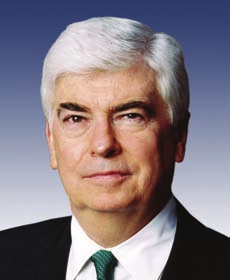
All of the questions surrounding Obama’s past are easy to reconcile, once you realize that his many accomplishments are actually those of Dodd. Much has been made of Obama’s 2004 keynote speech at the Democratic National Convention, a call for unity that thrust him into the national spotlight. But records from the time show that the real Barack Obama was only a state senator. The DNC would never have given him that kind of platform. Christopher Dodd was a United States senator, and potential presidential candidate. Clearly, it was Dodd who gave that speech.
In the Senate, the man from Hawaii stood in as a front for legislation that Dodd would have considered too controversial to put his own name on. For example, the Mercury Export Ban Act of 2008 was supposedly sponsored by “Senator Barack Obama.” But the true author of the bill left behind plenty of coded messages in the text, so posterity would have no doubt who really sponsored it. (Click below for a larger image.)

Anti-Hartfordian critics have pointed out that it is impossible for Dodd to have sponsored both Obama’s legislation and his own at the same time. But Dodd is one of the great legislative geniuses of all time, and was able to manage it without raising suspicion. In 2010, “President Barack Obama” signed into law the Dodd-Frank Wall Street Reform and Consumer Protection Act. The former president, George W. Bush, had been opposed to financial regulation. But the man from Hawaii takes office, and all of a sudden financial reform is on the table? Obviously, Dodd signed his own bill into law.
The idea that the President of the United States is Barack Obama is one of the greatest frauds ever perpetrated on the American people, despite overwhelming evidence that it is actually Chris Dodd. I guess people just see what they want to see.
Via the Shakespeare Geek, we learn of a website called Shakespearean Monkey, written by a middle school-aged kid:
Monkeys are smart. Though they haven’t created cars or trains or weapon, they are educated through simplicity. They flourish on what they have, and if something doesn’t work, they don’t give up, but they evolve to overcome it. Like monkeys, Shakespeare had no thesaurus, no dictionary, no laptop and no editor. But when he came to a spot where he was at loss for words, he made up his own words. Through practice, perseverance and certainly trial and error, he created works that will last forever.
I am a 13 year old kid who is trying to read and attend live performances of all 37 Shakespeare plays (plus three possible collaborations) in 2 years. This is a record of my experiences.
One could be forgiven for doubting the veracity of the “13 year old kid” claim, given the fact that the author seems to have an advanced level of writing ability, detailed knowledge of Shakespeare, sophisticated understanding of live theatre, and the wherewithal to attend top-quality theatrical productions in a variety of far-flung cities. But the Shakespeare Teacher has never been one to question authorship, and isn’t about to start now.
Seriously, though, wow. What ever this kid has, I wish I could bottle it. That being impossible, I am left to join Duane in offering this young man or woman a welcome to our online community. The Shakespeare Teacher is now your student.
I subscribe to a service called “SiteMeter” which allows me to see a limited amount of information about my visitors. One thing that I can see is if someone finds my site via a Google search, and what they were searching for.
Every now and then I check in on what searches people have done to find themselves at Shakespeare Teacher, and to respond to those search terms in the name of fun and public service. All of the following searches brought readers to this site in the past week.
Enjoy!
Queen Katherine in Shakespeare’s Henry VIII is Catherine of Aragon. You can find good monologue material here and here.
You really have to consider Paulo Friere as Augusto Boal’s number one influence. Boal’s works also contain significant references to Marx, Hegel, Aristotle, Brecht, and Shakespeare. He was, of course, also greatly influenced by all of the many people with whom he interacted during his lifetime.
I love the idea of having students write obituaries for Shakespeare’s characters. They could also write classified ads, advice column requests, and news stories. I’ve recently read blog posts where characters from Shakespeare have written Letters to Santa and New Year’s Resolutions, and these seem like good writing assignments for students as well.
Because he kills everyone who might possibly get in his way. But is he ultimately successful? See below.
Nothing. He’s dead.
Even if he weren’t, life would be bleak. His wife would be gone, and he’d be out of power. And as a former tyrant, he’d be made a laughing stock among the people. His decision to attack Macduff after all of the prophecies have come true may seem reckless to us, but he may not feel that he has a choice.
People looking for hidden “I wrote this” messages in Shakespeare are generally looking to prove that the plays were written by someone else. Shakespeare would have had little reason to hide such a message. But take a look at this page from a late Hamlet quarto, and see if you can find Shakespeare’s authorship message (hint: look at the writing below “Hamlet, Prince of Denmark”).
None of the three seasons of Slings & Arrows centered around The Tempest, but the very first scene of the series does. Geoffrey is directing this very play before the events that will bring him back to the New Burbage. I often tell people who may be interested in the show to watch this scene and the opening credits, and if they’re not hooked by then, there is no need to go on.
With this age group, I recommend doing activities to introduce the plot, characters, and themes of the play before they read the actual text. Start here, and if you like what you read, check out my doctoral dissertation, which was on this exact topic. You should also check out the Cambridge School Shakespeare Macbeth, which has a lot of great activities that can be adapted to this age group, and the Shakespeare Set Free book that includes Macbeth
for even more great ideas.
Probably the most significant war Shakespeare lived through was the undeclared Anglo-Spanish War. In the late 16th century, Spanish King Phillip II was gathering an international coalition of Catholic forces to launch an invasion of England and overthrow Queen Elizabeth I. The Spanish Armada was famously defeated by the English navy in 1588. This victory launched a new wave of patriotic fervor among the English, and a popular trend of writing plays about English kings just as Shakespeare was beginning his career as a playwright.
No. Tudor was the surname of the English royal family from 1485 to 1603. The man we refer to as King Henry VIII was born Henry Tudor, Queen Elizabeth I was Elizabeth Tudor, etc. Margaret Tudor, sister of Henry VIII, married James Stuart (King James IV of Scotland) and their offspring continued the Stuart line in Scotland. Eventually, the Stuarts (in the person of James VI of Scotland) ascended to the English throne as well. When we speak of the Tudors and the Stuarts, then, we are not referring to titles, but to actual family names.
So, Shakespeare wasn’t a Tudor; he was a Shakespeare. But he was born and raised under Tudor rule. He lived the rest of his life under Stuart rule.
I was taken aback by this one.
In this post, I discussed how ancient Greek playwrights would often show characters torn between their solemn duties to their oikos (family) and their polis (state), and how this is also a recurring theme in the television series 24. I also discussed how both 24 and ancient Greek tragedy share a unity of place, and used Antony and Cleopatra as a counter-example to demonstrate that Shakespeare did not have to conform to this unity.
What, then, was this search looking for? I don’t really think that oikos vs. polis is a theme in Antony and Cleopatra. It seems to me that the interests of family and state are aligned, and what the title characters are really balancing are those interests vs. their own passions.
The technical term for a king with no Y chromosomes is a “queen.” Notable queens of England have included a couple of Elizabeths, a couple of Marys, an Anne, and a Victoria (plus others, depending on what you want to count).
Almost by definition, a man has an X chromosome and a Y chromosome, and a woman has two X chromosomes. I say almost, because it is possible for there to be variations, but I am not familiar with any kings of England with such a condition.
I leave the task of responding to the remaining search terms to my readers:
prisoner’s dilemma lear
list of tv influenced by shakespeare
how to write a tudor invitation
robert duvall shakespeare
what does evil teach king lear?
shakespeare visual art
vienna`s english theatre macbeth zusammenfassung
genghis the teacher
social justice theatre
teaching the tempest using utube
humor in othello
comment of fifth act of macbeth from line 10 to 25
I caused quite a bit of controversy in the academic world with my last anagram that demonstrated that Sir Francis Bacon may be the true author of Shakespeare’s works. Now, I make amends.
At the end of the play, Shakespeare sets the record straight about these hidden messages. I apologize for any inconvenience I may have caused by shaking up your worldview.
From A Midsummer Night’s Dream:
If we shadows have offended,
Think but this, and all is mended,
That you have but slumber’d here
While these visions did appear.
Shift around the letters, and it becomes:
Tell this: I, dubbed William Shakespeare, penned the stuff.
The odd hidden author shifts you have been shown was a vivid dream.
Have you ever wondered about those “other” plays mentioned in the last act of A Midsummer Night’s Dream, the options that Theseus doesn’t choose? The titles seem kind of random and nonsensical. Could they actually be anagrams of hidden messages? You be the judge.
From A Midsummer Night’s Dream:
The battle with the Centaurs, to be sung
By an Athenian eunuch to the harp.
Shift around the letters, and it becomes:
Want the authentic truth?
Bacon’s the genuine author beneath the plays.- B.
From A Midsummer Night’s Dream:
The riot of the tipsy Bacchanals,
Tearing the Thracian singer in their rage.
Shift around the letters, and it becomes:
Get it right.
I, Sir Francis Bacon, create entertaining theatre plays.
Hah! Hoh!
From A Midsummer Night’s Dream:
The thrice three Muses mourning for the death
Of Learning, late deceas’d in beggary.
Shift around the letters, and it becomes:
Go get the true author. I feel I’m he.
Sir Francis Bacon engendered the lengthy dramas.
Let the games begin!
UPDATE: And what of the title of the play that Theseus did choose?
From A Midsummer Night’s Dream:
A tedious brief scene of young Pyramus
And his love Thisbe; very tragical mirth.
Shift around the letters, and it becomes:
Vet the author of the plays.
I am. Sir Francis Bacon.
You disbelieved my genius. Grr.
UPDATE II: A clarification anagram.
You can say anything you want:
For hundreds of years, people have questioned whether William Shakespeare wrote the plays that bear his name. The mystery is fueled by the fact that his biography simply doesn’t match the areas of knowledge and skill demonstrated in the plays. Nearly a hundred candidates have been suggested, but none of them fit much better. Now a new candidate named Amelia Bassano Lanier – the so-called ‘Dark Lady’ of the Sonnets and a member of an Italian/Jewish family – has been shown to be a perfect fit.
Via the Shakespeare Geek, who is kind enough to suspect that the whole thing is a put on.